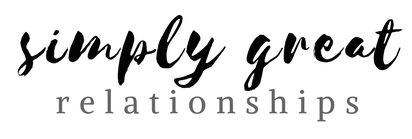One of the most challenging dynamics couples face is when one (or both) partners lie. Being lied to can be extremely triggering within a romantic relationship. Growing up, we’re taught about the inherent “wrongness” in lying and those lessons become internalized as unwavering beliefs.
“Bad people lie.”
“People who lie have something to hide.”
“If someone loves you, they will always be honest with you.”
Learning your partner has lied can lead to a cascade of worry thoughts and questioning past experiences, like:
“How could the one person who is supposed to love and care for me LIE to me?”
“They must not love me as much as they say they do.”
“They must have something to hide.”
“If they’ve lied about this, what else might they have lied about?”
While this is normal, it likely won’t serve you, your relationship, or lead to more honesty from your partner. Lying often comes in moments of emotional stress, as a means of surviving this moment. (Yes, we know they would survive without lying, but it doesn’t always feel that way). This means that establishing a culture of emotional safety is crucial in shifting a dynamic of dishonesty.
If you want to know more about why our partners’ lie and how to change this pattern, be sure to listen to this week’s episode.
Disclaimer:
Silveron Productions LLC and Nassau Wellness Marriage and Family Therapy PLLC do not hold itself out to be your psychologist, psychiatrist, psychotherapist, or social worker. Our content is provided for informational and educational purposes only and is not to be perceived or relied upon as medical or mental health advice, diagnosis or treatment. Do not use our content in lieu of professional advice given by qualified medical and mental health care professionals and do not disregard professional medical or mental health care advice or delay seeking professional advice because of information you have received from us. Always seek the advice of your physician or other qualified mental health provider with any questions you may have regarding a medical condition or mental disorder. If you think you may have a medical or mental health emergency, call your professional caregiver or 911 immediately. We do not recommend or endorse any specific tests, physicians, psychologists, psychiatrists, psychotherapists, social workers, products, procedures, opinions, or other information that may be mentioned in our content. By viewing our content, you acknowledge and agree that the following warnings and disclaimers apply to all of our content and agree to indemnify and hold Nassau Wellness and all content participants for any and all losses, injuries, and damages resulting from any and all claims that may arise from your use or misuse of the content.
By viewing our content, you further acknowledge that you are doing so voluntarily and at your own risk, and that you are solely and personally responsible for your choices, actions, and results, now and in the future. You accept full responsibility for the consequences of your use or non-use of any information provided in our content. Nassau Wellness is not liable for any advice or information provided in our content, all of which is provided on an “as-is” basis. No warranties, either express or implied, are made regarding the information we provide, and Nassau Wellness makes no representations about the accuracy or the suitability of our content. Opinions and other statements expressed by third-parties are theirs alone.


